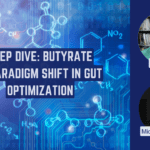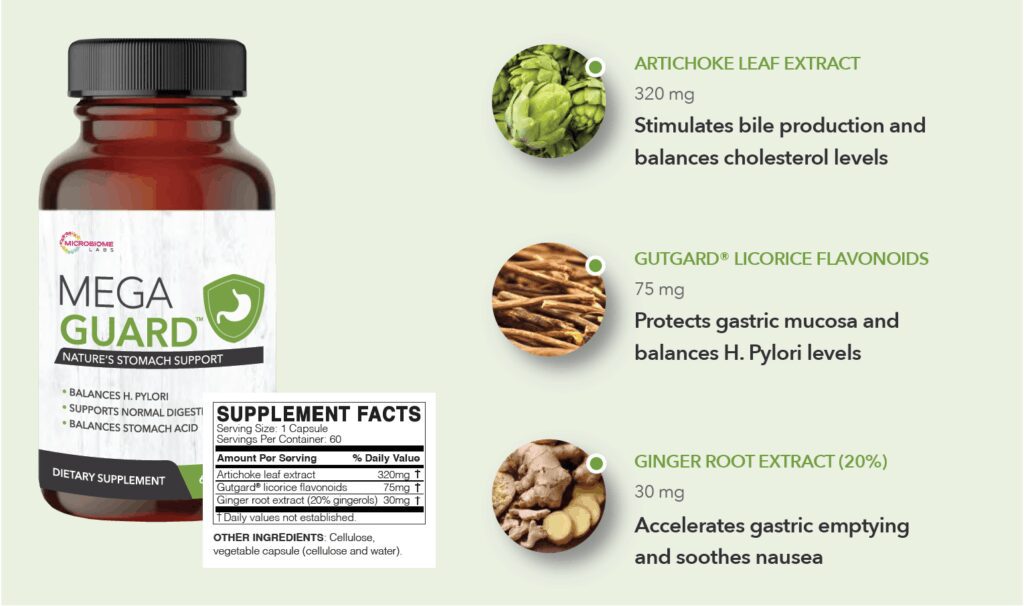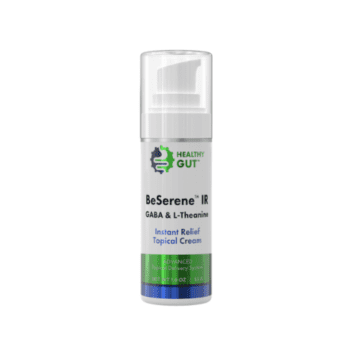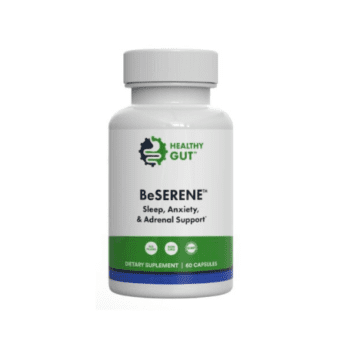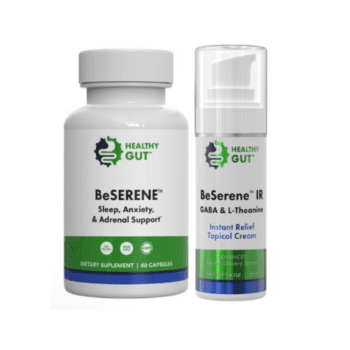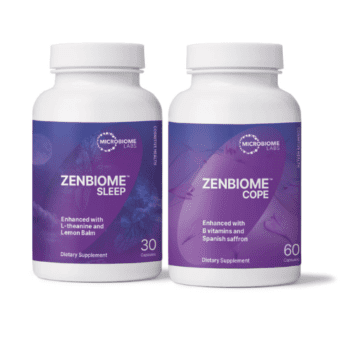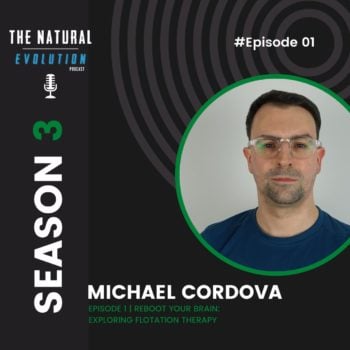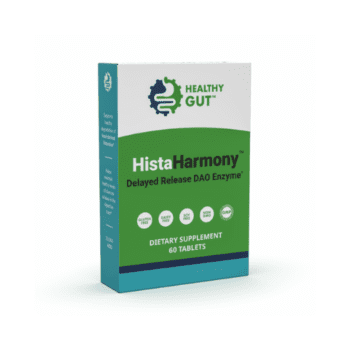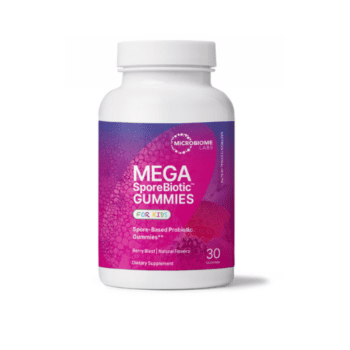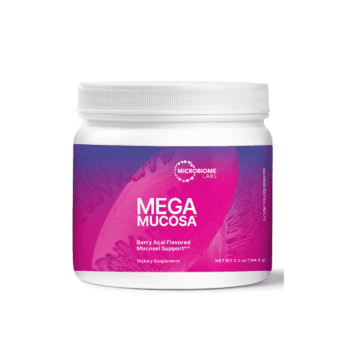

More Posts from
Gut Microbiome & Digestion

Meet Your Microbiome: The Human Microbiome and How to Optimize It
Meet Your Microbiome: The Human Microbiome and How to Optimize
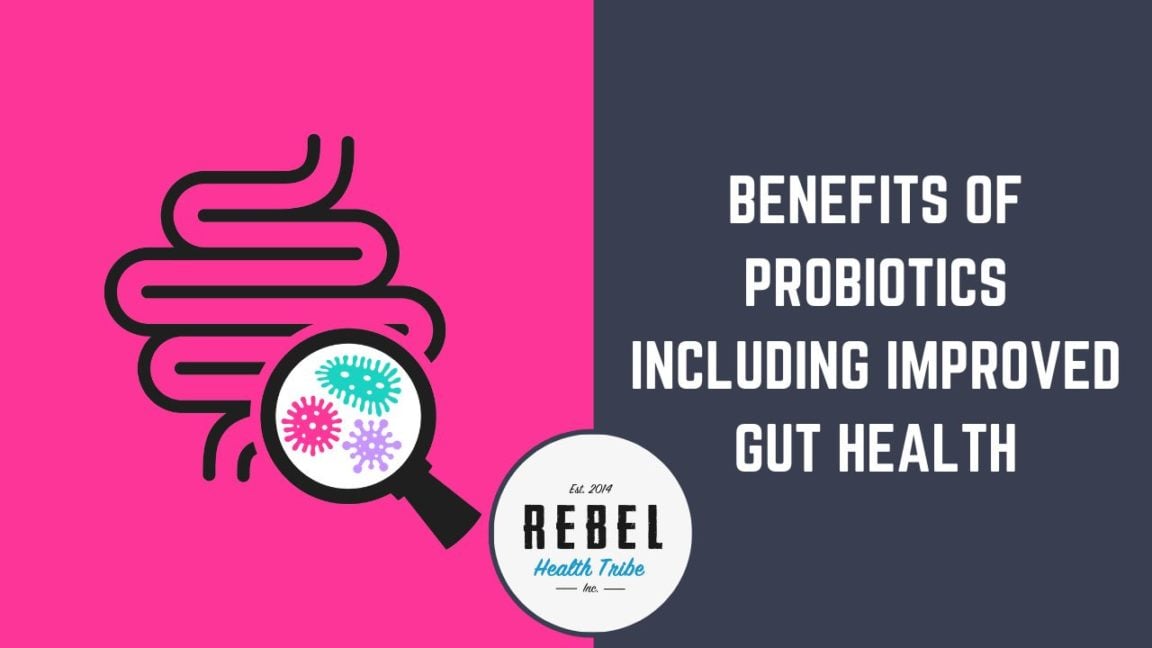
Benefits of Probiotics Including Improved Gut Health
Benefits of Probiotics Including Improved Gut Health “Probiotics” has become
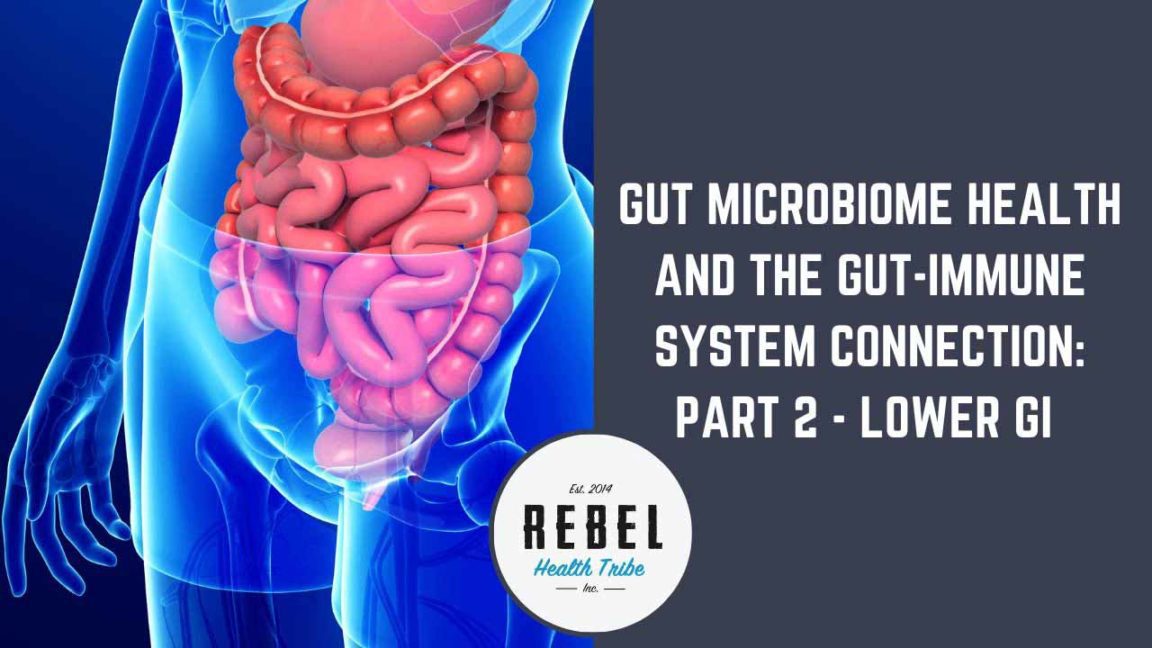
Gut Microbiome Health and the Gut-Immune System Connection: Part 2 Lower GI
Gut Microbiome Health and the Gut-Immune System Connection: Part 2
MegaGuard

MegaGuard is a novel digestive aid that combines protective licorice, cleansing artichoke, and soothing ginger to promote normal digestion, balance stomach acid, and reduce occasional digestive discomforts such as gas, bloating, and indigestion.
Background of MegaGuard
Stomach and gallbladder dysfunction affects roughly 7 million people in the United States. And to make matters worse, problems with the gallbladder and stomach are often interrelated and easily misdiagnosed. When left untreated, upper GI issues can lead to dysfunction further down the GI tract in the intestines. For example, acid reflux can degrade the lining of the esophagus, and uncontrolled H. pylori infections can lead to ulcers and stomach cancer. Furthermore, inadequate bile production can lead to poor digestion of fats, gallstones, and impaired detoxification.
Functional dyspepsia is an upper GI condition characterized by indigestion, bloating, abdominal cramping, and feelings of fullness. There is no known cure, but current treatments include elimination diets, stress management, antibiotic treatments for H. pylori, pain killers, proton pump inhibitors, and H2 blockers. Proton pump inhibitors (PPIs) and histamine antagonists (H2 blockers) are the traditional treatments for acid reflux because they can reduce the acidity of stomach acid, but these medications can be damaging to the rest of the GI tract and cause even more problems with long-term use.
PPIs work by blocking the production of hydrochloric acid in the stomach, and H2 blockers reduce stomach acid secretion by preventing histamine from binding to its receptors in the stomach. While this may provide short-term relief, it can cause detrimental effects on the rest of the GI tract, particularly the gut microbiome.
PPIs and H2 blockers are intended for short-term use; however, many patients may remain on this medication for longer than its intended use. In fact, a recent study showed that 70% of patients prescribed a PPI in a hospital setting did not actually need the treatment.1 Furthermore, 19% were discharged from the hospital with PPIs, many of them believing they would need to continue taking the medication long term. Long-term use of this medication decreases the acidity of the stomach, disrupting one its primary protective functions: killing harmful bacteria.
Long-term or unwarranted use of PPIs can actually increase the risk of pathogenic gut infections like Salmonella, Campylobacter jejuni, Escherichia coli, Clostridium difficile, Vibrio cholerae, and Listeria.2 Research shows that PPIs not increase the abundance of pathogenic E. coli and C. difficile, but they also decrease the overall diversity and richness of beneficial bacteria in the gut.3
Long term use of H2 blockers is associated with increased rates of stomach cancer, as well as short-term effects such as headaches, constipation, diarrhea, and difficulty sleeping.4
Given the limitations of current therapies, practitioners and researchers agree that alternative approaches to treating functional dyspepsia and other upper GI conditions may provide better results for patients.
Ingredients in MegaGuard
Licorice (Glycyrrhiza glabra) has a long history of use for treating digestive discomforts.5 In Ayurvedic and Traditional Chinese Medicine, licorice is well-known for its ability to protect the stomach lining and balance everyday inflammation. One of the most commonly known active ingredients in licorice is a compound known as glycyrrhizin that has been used as an emulsifier and sweetener in the food industry. However, large amounts of glycyrrhizin have been associated with serious adverse side effects like elevated blood pressure and lowered potassium levels. For this reason, most dietary supplements that contain licorice remove the glycyrrhizin content resulting in deglycyrrhizinated licorice or DGL. DGL can be very beneficial for gut health, but it generally requires larger doses in order to be effective. This is because the active compounds, known as polyphenols or flavonoids, are the components of licorice that provide the most protection.
Gutgard ® is a novel ingredient made up of these powerful licorice flavonoids. The licorice flavonoids in Gutgard ® are entirely different from DGL with respect to chemistry, composition, manufacturing, and mechanisms of action. While standard DGL does not contain any significant quantity of flavonoids, Gutgard ® contains more than 10% total flavonoids and less than 0.5% of glycyrrhizin to avoid undesirable effects. More than 50 flavonoids have been identified in Gutgard ® which have been shown to have beneficial effects on digestion.6 In fact, Gutgard ® licorice flavonoids have been shown to protect the stomach lining and balance Helicobacter pylori levels much more effectively than regular DGL extracts with only 1/10th of the amount.7 Gutgard ® licorice can also relieve occasional indigestion, bloating, and stomach pain.
Gutgard ® is the ingredient that originally inspired this product and motivated Kiran to create a product for stomach and gallbladder health. After months of research, artichoke leaf extract and ginger root extract were selected to complement Gutgard ® in this robust formula designed to protect the upper GI tract.
Artichoke (Cynara scolymus) leaf extract (ALE) has also been used in traditional medicine as a digestive aid. The bitter compounds, particularly cynaropicrin, are responsible for the digestive benefits of artichoke. ALE has been shown to increase bile production, protect the liver, balance blood lipids, and act as an antispasmodic.8-15
Ginger (Zinziber officinalis) has been used as a digestive aid in Eastern medicine for generations.
Studies have demonstrated that ginger accelerates gastric emptying and can relieve occasional bouts of nausea and vomiting.16-17 Gingerols and shogaols, the active polyphenolic compounds in ginger, appear to be responsible for such effects by weakly inhibiting the receptors responsible for nausea, vomiting, and hypomotility.18-19 Ginger extracts with a higher gingerol content (20-30% gingerols) are stronger and more effective at relieving digestive discomforts. While most ginger extracts only contain 5% gingerols, MegaGuardTM contains high potency ginger root extract with 20% gingerols for maximum strength.
MegaGuard Function
The Science and Research Behind MegaGuard
GutGard ®
Mouse studies have found that taking GutGard ® once daily for 8 weeks significantly reduced H. pylori abundance in the stomach.20 Mechanistic studies suggest that glabridin, one of the many flavonoids found in Gutgard ®, is responsible for this protective effect by interfering with the multiplication and adhesion of H. pylori to the mucosal lining in the stomach. Without the ability to multiply or adhere to the gastric mucosa, opportunistic H. pylori cannot grow out of control and wreak havoc in the stomach.
Glabridin also appears to soothe inflammation in the stomach as well, which can be helpful for anyone prone to developing stomach ulcers.21 In this way, GutGard ® gives the stomach a chance to heal, resulting in reduced stomach pain, bloating, and discomfort.21,22 Furthermore, studies show that GutGard ® can mimic pharmaceutical prokinetic agents, like metoclopramide (Reglan), domperidone (Motilium), and levosulpiride, while also helping to repair the stomach lining.23 This improves digestion and reduces symptoms of functional dyspepsia by encouraging a natural movement of food through the digestive tract.23,24
Artichoke Leaf
In a six-week double-blind, placebo-controlled study, German researchers tested the effectiveness of artichoke leaf extract on patients with functional dyspepsia.25 Two hundred forty-seven patients, ages 18-75, were randomly divided into 2 groups. For 6 weeks, the control group received placebo capsules, while the treatment group received 320 mg of artichoke leaf extract with lunch and dinner. At the end of the study, the experiment group experienced significantly greater reduction in unwanted symptoms, as well as an increase in quality of life.25 Furthermore, although the study was conducted over 6 weeks, the majority of the treatment group saw relief of their digestive symptoms in the first week.
Ginger
In 2015, an Italian study of 126 patients with functional dyspepsia monitored the effects of daily supplementation with 40 mg of ginger extracts (25-30% gingerols) and 200 mg of artichoke leaf extracts over the course of 14 days. Researchers found that only 14 days of this daily combination reduced the severity and frequency of common digestive symptoms like nausea, bloating, early satiety, and abdominal pain 17% more effectively than just artichoke leaf extract alone.26
Further randomized, experimental studies, using only ginger, revealed that such supplements can aid gastric emptying, thereby assisting the natural movement through the GI tract known as peristalsis.27 Indigestion, belching, and small intestine bacterial overgrowth (SIBO) are symptoms of delayed gastric emptying; and therefore, ginger can be helpful in the upper as well as the lower GI tract.28 Interestingly, researchers point to the fact that ginger and artichoke complement each other in their action. Ginger can activate in the stomach, while artichoke is active in the small intestines.28
MegaGuard Indications
- Indigestion
- Bloating
- Helicobacter pylori infection
- Acid reflux
- Functional Dyspepsia
- Peptic Ulcer Disease (Stomach Ulcers)
- Gallbladder removal
- Cholecystitis
- Irritable Bowel Syndrome
Small Intestinal Bacterial Overgrowth (SIBO)

Advantages of MegaGuard
There are many advantages to using MegaGuard over other similar digestive aids. The main advantage comes from the fact that MegaGuard contains highly concentrated and scientifically-validated flavonoids from licorice rather than just diluted licorice extracts alone. Other licorice-based supplements tend to contain DGL, which can be soothing for the intestinal lining but lacks the protective powers of the licorice flavonoids. Gutgard ® contains more than 50 flavonoids that have been shown to improve digestion.6 In fact, Gutgard ® licorice flavonoids have been shown to protect the stomach lining and balance Helicobacter pylori levels much more effectively than regular DGL extracts with only 1/10th of the amount.7
MegaGuard also stands out among other artichoke leaf extracts because it contains the same extraction ratio of the artichoke leaf product HeparSL Forte, the German pharmaceutical drug used in the aforementioned 6-week clinical study on functional dyspepsia.25 MegaGuard contains the same extraction ratio and the efficacious dose used in the study for maximum efficacy. Most companies will use research to support their formulations, but often times the dosing used in the study is significantly higher than the dose of the formula being sold. MegaGuard was formulated based on scientific research in order to provide the most favorable results.
Additionally, the ginger root extract used in MegaGuard is a high-potency ginger extract very similar to the one used in the aforementioned artichoke and ginger study.26 Standard ginger extracts contain 2-5% gingerols, but MegaGuard contains 20% gingerols in order to match the concentration used in the study. This formula is one of the few digestive aids that is truly evidence-based.
Suggested Use
Ages 8+: Take one capsule with lunch and dinner, or as directed by your healthcare practitioner. Do not open capsules. Capsule contents will have a strong bitter taste.
MegaGuard is best taken with a meal since it functions as an herbal digestive aid. Most people notice a reduction in bloating, cramping, nausea, and fullness in the first week.
MegaGuard is safe for children as long as they are able to swallow pills. Opening the capsules of MegaGuard will not reduce the efficacy of the product, but the strong herbs may not be palatable for children or adults. MegaGuard is also safe to take before, during, and after pregnancy. Pregnant mothers have reported that that MegaGuard helps significantly with nausea and morning sickness.
Synergy
When used in combination with other Microbiome Labs products, MegaGuard offers complete gastrointestinal support from the stomach all the way to the colon. MegaGuard works synergistically with any Microbiome Labs product but will be most effective when taken with MegaSporeBiotic as part of the RECONDITION phase of the Total Gut Restoration system.
Duration
This product can be taken for acute, short-term relief of symptoms or used indefinitely. People who have had their gallbladder removed may want to take MegaGuard with meals indefinitely.
Contraindications
Because Gutgard ® can mimic prokinetic agents and balance stomach acid, it’s important to talk with your doctor before taking MegaGuard if you are already taking other medications for any form of upper GI dysfunction. In some cases, you may need to reduce your dose of prokinetics, PPIs, or H2 blockers when taking MegaGuard, but it is best to do so under medical supervision.
References
- Singh A, et al. Identifying Risk Factors Associated with Inappropriate Use of Acid Suppressive Therapy at a Community Hospital. Gastroenterol Res Pract. 2016;2016:1973086.
- Bavishi C, Dupont HL. Systematic review: the use of proton pump inhibitors and increased susceptibility to enteric infection. Alimentary Pharmacology & Therapeutics. 2011;34(11-12):1269-1281.
- Imhann F, et al. Proton pump inhibitors affect the gut microbiome. BMJ Journals. 2016;65(5).
- Cheung KS, et al. Long-term proton pump inhibitors and risk of gastric cancer development after treatment for Helicobacter pylori: a population-based study. Gut. 2018;67:28-35.
- Wittschier N, et al. Aqueous extracts and polysaccharides from liquorice roots (Glycyrrhiza glabra L.) inhibit adhesion of Helicobacter pylori to human gastric mucosa. Journal of Ethnopharmacology. 2009;125(2): 218–223.
- Omar HR, et al. Licorice abuse: time to send a warning message. Therapeutic Advances in Endocrinology and Metabolism. 2012;3(4): 125–138.
- Asha MK, et al. Effect of Flavonoid-Rich Extract of Glycyrrhiza glabra on Gut-Friendly Microorganisms, Commercial Probiotic Preparations, and Digestive Enzymes. J Diet Suppl. 2017;14(3):323-333.
- Gebhardt R, Fausel M. “Antioxidant and hepatoprotective effects of artichoke extracts and constituents in cultured rat hepatocytes. Toxicology in Vitro. 1997; 11(5):669–672.
- Gebhardt R. Inhibition of hepatic cholesterol biosynthesis by artichoke leaf extracts is mainly due to luteolin. Cell Biology and Toxicology. 1997;13:58.
- Brown JE, Rice-Evans CA. Luteolin-rich artichoke extract protects low density lipoprotein from oxidation in vitro. Free Radical Research. 1998;29(3):247–255.
- Perez-Garcia F, et al. Activity of artichoke leaf extract on reactive oxygen species in human leukocytes. Free Radical Research. 2000;33(5): 661–665.
- Rechner AR, et al. Caffeic acid derivatives in artichoke extract are metabolised to phenolic acids in vivo. Free Radical Research. 2001;35(2):195–202.
- Ishida K, et al. Effects of artichoke leaf extract on acute gastric mucosal injury in rats. Biological and Pharmaceutical Bulletin. 2010;33(2):223–229.
- Emendorfer F, et al. Antispasmodic activity of fractions and cynaropicrin from Cynara scolymus on guinea-pig ileum. Biological and Pharmaceutical Bulletin. 2005;28(5): 902–904.
- Holtmann G, et al. Efficacy of artichoke leaf extract in the treatment of patients with functional dyspepsia: a six-week placebo-controlled, double-blind, multicentre trial. Ailment Pharmacy Ther. 2003;18:1099-1105.
- Committee on Herbal Medicinal Products. Assessment report on Zingiber officinale Roscoe, rhizome. European Medicines Agency. 2011; EMA/HMPC/577856.
- Wu KL, et al. Effects of ginger on gastric emptying and motility in healthy humans. Eur J Gastroenterol & Hepatol. 2008; 20(5): 436–440.
- Ford AC, et al. The Rome III criteria for the diagnosis of functional dyspepsia in secondary care are not superior to previous definitions. Gastroenterology. 2014;146(4):932–940.
- Haag S, et al. Symptom patterns in functional dyspepsia and irritable bowel syndrome: relationship to disturbances in gastric emptying and response to a nutrient challenge in consulters and non-consulters. Gut. 2004; 53(10): 1445–1451.
- Kim JM, et al. Anti-Helicobacter pylori Properties of GutGardTM. Preventive Nutrition and Food Science. 2013;18(2):104-110.
- Thiyagarajan P, et al. Modulation of lipopolysaccharide-induced pro-inflammatory mediators by an extract of Glycyrrhiza glabra and its phytoconstituents. Inflammopharmacology. 2011;19(4):235-241.
- Chandrasekaran C, et al. Dual inhibitory effect of Glycyrrhiza glabra (GutGard™) on COX and LOX products. Phytomedicine. 2011;18(4):278-284.
- Velusami CC, et al. Effect of Flavonoid Rich Root Extract of Glycyrrhizaglabra on Gastric Emptying and Gastrointestinal Transit in Albino Wistar Rats. SOJ Pharmacy & Pharmaceutical Sciences. 2017;4(2):1-4.
- Raveendra KR, et al. An Extract of Glycyrrhiza glabra (GutGard) Alleviates Symptoms of Functional Dyspepsia: A Randomized, Double-Blind, Placebo-Controlled Study. Evid Based Complement Alternat Med. 2012;2012:216970.
- Holtmann G, et al. Efficacy of artichoke leaf extract in the treatment of patients with functional dyspepsia: a six-week placebo-controlled, double-blind, multicentre trial. Alimentary Pharmacology and Therapeutics. 2003;18(11-12):1099-1105.
- Giacosa A, et al. The Effect of Ginger (Zingiber officinalis) and Artichoke (Cynara cardunculus) Extract Supplementation on Functional Dyspepsia: A Randomised, Double-Blind, and Placebo-Controlled Clinical Trial. Evid Based Complement Alternat Med. 2015;2015:915087.
- Bodagh MN, et al. Ginger in gastrointestinal disorders: A systematic review of clinical trials. Food Science & Nutrition. 2018;7(1):96-108.
- Hu ML, et al. Effect of ginger on gastric motility and symptoms of functional dyspepsia. World J Gastroenterol. 2011;17(1):105–110.
Webinar Video Transcribed
Michael: All right, it says we’re live. Hello, everybody. Oh, Kiran, you just went away. There, you came back. Okay.
Kiran Krishnan: Hey, I’m back.
Michael: He’s back. That was it, everybody. We did it. It’s over.
Kiran Krishnan: That was my big intro. Let me just pop in and pop out.
Michael: Thanks for joining us. I see the chat box, tons of people in there. Please drop us a note that you can see and/or hear us. Since the last webinar we did, I have gone through dozens of appointments and multiple hours in two computers and three modems and six maintenance guys to make sure that the webinars will work more smoothly. It is definitely not on my speed and connection anymore if it’s not coming through. I have the fastest internet on the planet. It is, it’s crazy. The webinar jam people couldn’t even believe that the provider here is able to get the speed that was showing up on my tests.
Michael: If you don’t see anything, don’t hear anything, have some sort of connection error, definitely either refresh your browser, try it in Chrome, Chrome is the most effective, then Firefox, then Safari or something else. But Chrome is usually the most effective. If you’re having connective issues, either refresh the browser or close this and then go back to the email and click it and try to reopen it now that we’re here. But it looks like most people are seeing and hearing pretty well. Had to reconnect I can see in here, 10 four. Okay.
Michael: Nothing’s perfect on these things. I apologize if there’s an issue. There are ways we can send humans into space but we cannot make webinar situations that…
Kiran Krishnan: Uh oh. Michael, you’re silent again.
Michael: There, I’m back.
Kiran Krishnan: Yeah, you disappeared and came back silent.
Michael: Yeah, I changed the definition on my screen because it looks super clear to me, but they’re saying I’m blurry.
Kiran Krishnan: Oh yeah, I’m wondering if I’m blurry as well.
Michael: They say you’re clear but I’m blurry. And now he went away. Now he’s back. Now you’re there. All right. You need to hear us, not see us, so we’ll just roll with this. We are talking today about a subject that somehow we haven’t talked about really much. I don’t know how that happened because I thought we had covered every single possible topic, but we’re going to talk about upper GI stuff and acid reflux and the stomach and H. pylori. I think we’ve touched on some of those things before, but we never had a whole webinar on it.
Michael: For those who don’t know, we were talking before we went live that it’s funny that I even introduce him at this point because we’ve done a million webinars, but this is Kiran Krishnan. He is the Chief Science Officer for Microbiome Labs, microbiologist that actually is usually traveling the world teaching doctors at various conferences and conventions, so it’s rare to catch him at home. Your home looks like a store. You bring work home with you there? Your microphone is off now, somehow. When you change the definition it screws with the microphone.
Kiran Krishnan: Yeah.
Michael: It looks like you brought some work home with you.
Kiran Krishnan: Yup.
Michael: I don’t really know what else to say other than we’ve started calling you the international man of microbiome mystery. So thanks for joining us here. Where was your last conference?
Kiran Krishnan: Let me think. One was in LA and the one before that was actually in New Zealand, which was awesome. There were three conferences where I spoke in a period of time. One of them was really interesting because it’s a lifestyle medicine, so in standard allopathic medicine they’re kind of pulled towards functional medicine is what they call lifestyle medicine, and that’s where regular allopathic MDs trying to understand how diet and lifestyle can influence medical outcomes. I did a couple of talks there. I did a gut-brain talk and an endotoxemia talk. It was really interesting to see because these are pretty much allopathic docs with a significant interest in this side of things. It was great to see where they were in their process of learning and how lost they can be with a lot of this stuff. So your audience knows far more about all this functional medicine stuff than most of those docs do. There’s a steep learning curve in the medical community, but those are places I really enjoy speaking.
Michael: I don’t know if that’s awesome or terrifying.
Kiran Krishnan: Yeah, it’s a little of both, I would say. It’s terrifying that the people who are really in charge of our health aside from us, which we should be the ones in charge of our health, but we put the faith in them, really are not that savvy when it comes to understanding our health, the real factors behind it. But it’s also awesome that we’re seeing a larger and larger group of standard allopathic docs expanding their horizons into the functional lifestyle side.
Michael: That’s great. I actually met one last weekend, not two days ago but the weekend before. I was at an event in LA, like a little get together type thing, and there was a doctor there who was transitioning from conventional medicine to functional medicine. She’s an MD, was a family medicine doctor, and she has watched our webinars.
Kiran Krishnan: Oh, awesome.
Michael: Yeah, and she didn’t know, it was out of context so people don’t always recognize you, you know? I said, “Yeah, I work in that field and blah, blah, blah,” and she said, “What do you do?” I told her and she’s like, “Wait, I know. You do microbiome webinars.” I said, “Yeah,” and she said that was one of the first things that she saw in her journey into functional medicine and now she trains at IFM and does all that type of stuff. So yeah, it was fun. It was funny. It’s weird to me every time a doctor tells me that they found out about stuff on our webinars. It’s always fun.
Kiran Krishnan: That’s awesome.
Michael: So that’s cool. Today we’re talking upper GI stuff. I typed in the chat. I’m going to do my best to keep up with the chat box. Hold on, I’m going to type in there too. If you’re having tech issues, please try a different browser and/or refresh your current browser and/or close the window and reopen from the email. I checked my internet speed a moment ago and my upload speed is 45 megabytes per second or megabits, whatever, and that is eight times faster than is needed to run a webinar. Cool.
Michael: Yes. All the webinars are on our website, where there’s the Microbiome Series. There’s Microbiome Series 2.0. There’s countless of them. We’re actually working right now, and we’ve done so many that this is an undertaking, we’re finding them all on various hosting places like Vimeo and YouTube and all the places where they exist and we are cataloging them and we’re going to have an organized section on our website within a month that has every webinar we’ve ever done searchable by topic. Kind of like a channel, like a TV channel of all things health. So all of Kiran’s webinars will be on there. We’re actually going to open up all the Microbiome Series ones to the public. That’ll be up within a month.
Michael: This one we’ll have a recording, so yes to that question. Yes, Explorer is not very good. Chrome did the trick, good. We will be sending this one out if you’re registered, and I will try to get to as many of the questions as I possibly can towards the end of the webinar. If I see a question in there and I definitely can answer it in the chat and I’m confident answering it, I’ll try to answer it, so I’ll do my best.
Michael: All right, I think those are all the basics. I looked up some facts about acid reflux and antacids and PPI medications, because I know that there’s a lot of that but then the numbers that I found I had to kind of do double takes on, because I saw that up to 50 million Americans take antacids at least once a month, 20 million take them almost three to five times a week, which is about 8% of the entire population, and that PPI medications sell over $13 billion worldwide annually.
Kiran Krishnan: Yeah, PPIs are the number one I think prescription drug category in the world.
Michael: Can you explain at all what that means? People hear PPI. They don’t really know what proton pump inhibitor means or what it does. Can you give a little brief overview of what it does?
Kiran Krishnan: Yeah. Stomach acid is released by stimulation by a hormone called gastrin. Gastrin is made by cells within the stomach lining itself, and the mechanism by which gastrin stimulates acid secretion is by activating protons. These are hydrogen plus protons. Those protons then are pumped into the inner part of the gastric layer and that change in polarity causes a release in acid. There’s a lot more complication to that actual mechanism, but these pumps that actually pump out the hydrogen protons are the things that act as the final signaling molecule to release acid. So when you use a PPI, a proton pump inhibitor, it’s a chemical that actually inhibits that mechanism which then stops or dramatically reduces the ability of your stomach to produce acid.
Michael: Which is the main function of the stomach.
Kiran Krishnan: Yup. Hydrochloric acid, yeah. As we get into this, we’ll talk about all of the downstream impact that that has. Now, here’s the other important thing, and a lot of people don’t really recognize this, is the duodenum. You remember your stomach is then connected to the first part of your small intestine. It’s called the duodenum. The stomach has these acid pumps that release acid. The duodenum does as well. The duodenum actually has a acid pump that produces a slightly different type of acid. It’s a little bit less acidic than the stomach, but it’s nonetheless very important. We’ll talk about why that’s important. So when you’re doing a PPI, not only are you stopping or significantly reducing stomach acid production, you’re also reducing duodenal acid production.
Michael: That’s a lot of probably unwanted additional effect there.
Kiran Krishnan: Yeah, I mean, it’s such a basic important function of arguably one of the most important organs in our system, our stomach, which is the first part of your digestion, or really the second part outside of the mouth. Then just stomping one of its major functions long term is nuts. It’s like stopping your heart from pumping.
Michael: Yeah, because you don’t like the way it’s necessarily pumping at the time.
Kiran Krishnan: Right, exactly.
Michael: So people just turn it off.
Kiran Krishnan: Yup, just turn if off.
Michael: It’s just incredible, but it’s just so common. It’s what you do. Tums and Rolaids, they taste like candy and they’re everywhere. A little known tidbit of information here, factoid, is that Rebel Health Tribe actually exists because of stomach acid. Joe, who co-founded Rebel Health Tribe with myself five years ago, sent me a message in a practitioner group asking me if I would do a webinar or an interview with him on stomach acid on how most people think they have too much stomach acid or it’s overactive, but actually it’s usually low, and that by taking antacids you’re doubling down on the problem that already exists, and can you explain, pretty much everything we’re going to talk about in this webinar. I didn’t understand why he wanted to interview me or interview on the topic, and then he explained that there’s this other. Long story short, we never did the interview, so here it is. Then we kind of realized we were trying to do a lot of the same stuff and decided to combine what we were doing into creating this company.
Michael: This all happened because of low stomach acid, and I never did the interview with Joe, so we’re going to do it with you instead today. I just thought that was a fun factoid. There are a lot of questions coming in. There’s probably more here than we’re going to be able to get to, but I’m marking them all. We’ll do our best. Why are seeing things like acid reflux, GERD at such rates in modern society today? What are the root causes? Why is it so prevalent? Why is everyone eating antacids?
Kiran Krishnan: Yeah. First and foremost, it’s really important to note that acid reflux, GERD, and all that has absolutely nothing to do with an overproduction of acid, so it’s not excessive acid secretion. The whole mentality behind treating it with lowering acid and neutralizing acid, which is what the Tums and all does, is absolutely the wrong approach. What’s happening is there’s something called intraabdominal pressure, gas pressure that actually occurs within the abdomen and also within the proximal part of the small bowel, so the duodenum area.
Kiran Krishnan: Basically, the gas pressure forces things back up versus things moving down through peristaltic activity and through the action of gravity. The way it’s all supposed to work is you eat food that just the action of chewing itself will start to release stomach acid in preparation for the food to come into the stomach. When the bolus of food enters the stomach it’s coated with stomach acid and pepsin and a few other things, but that stomach acid in particular starts hydrolyzing things, meaning it starts breaking down things like protein, carbohydrates. It doesn’t do a whole lot to fat, but protein and carbohydrates in particular are two really important things.
Kiran Krishnan: The other thing that the stomach acid does is it starts to kill of bacteria that’s coming in with the food. If you imagine our ancestors, they were eating very, very microbial-rich foods because a lot of the times they were eating raw things and things that they just, animal carcasses and things like that where they were loaded potentially with pathogens as well. So when you’re consuming food that’s rich in microbes, you need an acid wash, if you will, to bring down the microbial load of the food that’s coming in so that you reduce your risk of developing pathogen-like infections from food contaminants. So stomach acid also works in that perspective.
Kiran Krishnan: It’s really important to start the process of breaking down food. It’s really important to act as what a lot of immunologists call your first phase of your immune system, which is the gastric barrier. Now you’ve got a low pH, things are starting to churn up. Your stomach actually has this what we call in the laboratory stomaching action, which actually smushes things up so it’s mixing things with fluid and acid and pepsin, and then that mush gets squeezed into your duodenum, where there is more acid coming out, and those acids actually help your pancreatic enzymes come in and start chopping up your food, which includes proteins, carbohydrates, and so on. That starts a process of digestion and absorption.
Kiran Krishnan: That aspect is really important. Now, the other feature of this section of your gut, you stomach and your proximal part of your bowel, is that the microbial load is really low. There are microbes there. There’s very specific types of microbes there, but the overall microbial load is very low. For example, typically it’s 10 to the 4 CFUs per milliliter of extract if you take out, so 10 to the 4 is a thousand colony-forming units per milliliter. Compare that to your large bowel, your colon area, that has 10 to the 11, 10 to the 12, 10 to the 14, so these are a hundred billion, a trillion CFUs per ml. So a thousand versus a trillion or a thousand versus a hundred billion CFUs per ml, that’s the difference in microbial load in these two segments.
Kiran Krishnan: One of the biggest things that maintains that low microbial activity in the stomach region and in the small bowel starting with the duodenum on down is the stomach acid. That acidic environment acts as a strong antimicrobial. It allows for certain bacteria to do all right in that area, but it maintains low levels. Now, if we start stopping that issue, so number one, if we reduce the amount of acid that’s being produced, we increase the pH. When we increase the pH we get two factors. One, poor digestion of the food. Number two, we increase microbial growth both in the stomach and in the small intestine, especially the proximal part of the small intestine itself.
Kiran Krishnan: Now, what can happen is as you start to increase microbial growth and you start to have more undigested food, because the stomach acid’s not breaking down the food as effectively, you start to select for bacteria that can digest that food in the small bowel, especially in the proximal small bowel as far up as the duodenum.
Michael: Where it’s not supposed to be happening.
Kiran Krishnan: Where it’s not supposed to be happening at all. We don’t want any of that to happen. That’s part of the reason physiologically we have a naturally very low amount of bacteria in that area. Now, when you start getting any sort of fermentation going on in the duodenum itself, these fermented bacteria, especially the ones that are fermenting the amino acids that are coming in the protein through the diet, are going to be producing things like ammonia and hydrogen gas. That production of ammonia hydrogen gas causes a distention in the small intestine and the small intestine is not designed to be like the stomach, that can distend significantly beyond its normal physiological structure. It’s got a rate limited step in terms of how big the volume can be.
Kiran Krishnan: Once it reaches that rate limiting step because of the gas, the gas starts creating inflammation in the lining of the small intestine as well. That in itself can add to the distention. Then that distention forces its way back up, which is through the pyloric valve which separates the small intestine from the stomach, and then gas takes acid and other components back up through the stomach and then back into the esophagus as well. That’s where we experience the reflux. So this simple intraabdominal pressure that’s create by dysfunctional fermentation in the proximal part of the small intestine, which is driven by low acid, poor digestion, and an overgrowth of fermenting bacteria, typically proteolytic fermenting bacteria in those regions, will drive this reflux condition.
Kiran Krishnan: Now, a lot of this could have been started by an antibiotic or other behaviors, like smoking, for example, excessive drinking. These things have been shown to create dysfunction in acid secretion and oxidative stress damage to the pumps that pump out acid and so on. Lifestyle can disrupt acid production. Lack of vagal stimulation, that’s another important thing to up regulate acid production. Lifestyle components will disrupt acid production. Low acid production will lead to an overgrowth of microbes in those areas in the proximal part of the small intestine where they should be. That overgrowth causes gas pressure to create intraabdominal pressure and push stuff back up. So then what do we do to treat that? We take more antacids or we go all the way to PPIs, which brings down the acid even more, and it perpetuates the problem further.
Kiran Krishnan: Then you’ve got more complications, which we’ll talk about later, which is more gastroesophageal reflux and bile reflux as well, which stems from the lower part of the small intestine. We’ll talk about how that’s driven as well.
Michael: So it’s like a self-perpetuating chain reaction kind of.
Kiran Krishnan: It is, yeah.
Michael: And you mentioned vagal tone. I see a lot of questions coming in about sphincters not working properly. That is partially from the additional pressure coming from underneath that kind of blows things open, but the poor vagal tone, vagus nerve activation, also has a role with motility, with sphincters working properly, with the actual biomechanics of the digestive tract come from that nerve, right?
Kiran Krishnan: Absolutely. Yeah, and then let’s connect the dots even a little bit further. Once you start getting an overgrowth of proteolytic fermenting bacteria in the proximal part of your small intestine, one of the side effects of that is going to be inflammation in the lining, which I talked about, which also swells your small intestine in general. That inflammation will then lead to barrier dysfunction. Barrier dysfunction is leaky gut. Leaky gut will allow LPS to translocate into your circulatory system. I talk about this in some SIBO talks I’ve done. LPS has been shown then to travel up your enteric nervous system and embed itself in the vagal afferent nerve and totally turn off the signals between the brain and the vagal nerve controlling peristaltic movement and motility.
Michael: Wow. So LPS is endotoxins produced by bacteria that exist in the gut. Just in case anybody, I don’t know if you said that, but in case anybody missed that. All the bacteria make them, or most of the bacteria make this, but it’s supposed to stay in the GI tract, not in your blood.
Kiran Krishnan: Exactly, yeah. All bacteria in the world can be categorized as something called Gram-negative or Gram-positive. What that means is when you stain the bacteria and look at it under a microscope, you’ll either see that it picks up the stain, which means it’s Gram-positive, or doesn’t pick up the stain, which means it’s Gram-negative. If it doesn’t pick up the stain, it means it doesn’t have a cell wall structure, it only has a cell membrane. Those Gram-negative bacteria have this LPS in their cell membrane structure. A large component of your microbiome both pathogens and commensals are Gram-negative. This is a toxin that’s produced readily in your gut.
Kiran Krishnan: The thing is, especially in the small bowel, you shouldn’t have high levels of Gram-negative bacteria, thereby shouldn’t be having high levels of this toxin. And even if you do have this toxin, once it’s released, because bacteria die off during the digestion process, when the LPS is released because a bacterial cell breaks open and releases it, it’s supposed to be contained in the lumen, which is the hole in the intestine and bound up by the food and secretory IgA and so on and taken out through defecation. But if your gut is leaky because of the production of ammonia, p-cresol, hydrogen gas, all of these things that cause inflammation of the lining, it makes your gut leaky, then that LPS is allowed to leak through. That LPS can go in, get into the vagal afferent nerve, and start to significantly shut down the vagal tone and the peristaltic signals that come from your brain in the central nervous system.
Kiran Krishnan: What’s interesting is certain dysfunctions within bile, which we’ll talk about bile for a little while, also increase the prevalence of Gram-negative bacteria in the small intestine. That’s another effect. Again, that’s a self-perpetuating problem, but I’ll come back to that and tie it together later on.
Michael: Okay. That makes total sense. Somebody just asked why do antacids and PPIs reduce symptoms in a lot of people? Because they turn off the acid so there’s no acid, so there’s a whole backlog. The gas building up, which is pushing the acid up, which is going through the sphincter into the throat. If you turn off the acid and make there be no acid, that’s not going to be painful, but then it’s also going to perpetuate the problem further because the lack of acid is how the bacteria grew in the first place in the place where they shouldn’t, which is making them ferment food where they shouldn’t be, which is making gas push everything up. Right?
Kiran Krishnan: Exactly, yeah. What you feel in reflux that is uncomfortable or that hurts, or in GERD, is the acid component, because the acid is coming up into an area where your esophagus doesn’t have a mucosal lining to protect it against acid. Your stomach doesn’t feel it as long as you have a healthy mucosa, because the stomach mucosa is designed to handle that really low pH acid so you don’t feel it in the stomach. Now, of course there are conditions where your stomach lining starts to deteriorate and you do get that burn all the time, and that can be considered heartburn, which is the most common form of that. But as it’s refluxing up into your esophagus, you’re feeling it and the burning sensation is felt because of the acid. So when you use a PPI that brings down the acid amount, you’re still having that reflux but you just don’t feel it.
Michael: It just doesn’t hurt because there’s no acid in it, but then there’s also no acid breaking down your food, and there’s also more bacteria growing so it’s continuing the same… That’s why it’s hard for people to get off of these medications, because when you’re on them for a long time the problem that originally caused it is probably 10 times worse than it was when it first started, when the symptoms first started. That’s a lot of what allopathic medicine does. I mean, you have this underlying dysfunction of physiology which causes something to happen that either causes you pain or discomfort or something, which is a sign, hey, you’re doing something here, we should do something different, and instead we just shut that off. Then the thing that’s underneath it continues to fester and grow.
Michael: This is the strongest example of that, or one of them, that I could use as an example. If I wanted a stereotypical example of how shutting off the symptom makes the problem worse, this would be right up there on the list.
Kiran Krishnan: And this is the road we’ve been on with SIBO as well, which we’ll talk about SIBO, which is a big kind of frustration of mine even in the functional medicine world, because we’re treating SIBO in a very allopathic way.
Michael: By pounding tons of antimicrobials to kill the bugs that are there and not addressing why they’re there in the first place, pretty much, right?
Kiran Krishnan: Exactly, yeah. We’re 100% going after symptoms when we look for relief of SIBO, which is the distention and the discomfort in eating. I understand that that is the stuff that actually makes you suffer, but looking for things that bring down that symptomatology in the short term aren’t going to be the things that resolve it in the long term, and you’ll continue to battle with that, how do I bring the bloating down. We’ll talk about how all of the dietary changes that people make in SIBO and all that, how that actually perpetuates the problem.
Michael: The book Why Stomach Acid is Good For You, I’ve actually read through that book and it’s a good book. Somebody posted in there. I give that a thumbs up. All right. From there, somehow my questions closed. I do have questions pre-scripted, everyone. All right, so that’s a long answer to the first question.
Michael: H. pylori is another topic we were going to cover today. It’s a hugely popular buzzword, especially in the functional medicine world. It’s been shown to be present wherever we find ulcers. I remember reading about that eight or nine years ago. They found H. pylori is present where there’s stomach ulcers. It’s a bacteria. Is this organism trying to destroy our stomachs? Why is it there? Why does it get overgrown? Should we try to kill all of it? What’s the story with H. pylori? That just rhymed and that was awesome.
Kiran Krishnan: H. pylori, in general it’s considered an infection. In testing the world’s population, you find it pretty prevalent in over 50% of the world’s population, and it is associated with stomach ulcers and in some cases, in very rare cases, with certain types of cancers. But H. pylori more and more as they look into it, come to find out that it’s actually a commensal bacteria, meaning it should be there. What’s unique about it is its infective concentration is much lower than most other bacteria.
Kiran Krishnan: What does that mean? Well, almost any microbe, even the most dangerous of microbes, the most scary of microbes, things like C. diff, for example, vast majority of people watching this have some form and concentration of Clostridium difficile in their gut right now, but it’s not causing a problem because the concentration of it is very small. For a bug like C. diff or campylobacter or salmonella or any of those to cause actual symptoms and infection, they have to reach a certain virulent threshold in terms of their population. Oftentimes it’s something as high as 100,000 CFUs per ml with most pathogens, but with H. pylori it can be as little as 100 to 400 CFUS per ml where it can cause a problem. But below that it doesn’t and it seems to also maybe have some function, because there is some evidence that having H. pylori actually wards off against asthma and other allergic dysfunctions and it also seems to be protective against gastroesophageal cancers.
Kiran Krishnan: So it’s there. Typically it’s beneficial in some ways, but once it crosses a certain level then it becomes problematic. Now, what allows H. pylori to cross a certain level? The biggest thing is stomach acid. Having adequate amounts of stomach acid keeps H. pylori in check and that’s really important. So further use of PPIs, antacids, and then behaviors that may reduce stomach acid production like smoking, for example, or drinking actually will reduce stomach acids.
Michael: Even stress.
Kiran Krishnan: Even stress, yeah, absolutely. Lack of sleep and things like that. Highly processed foods, foods with really high certain types of fat content, some of these things have been shown to augment stomach acid production. These things all will lead to a higher prevalence rate of H. pylori, and when you have higher prevalence of H. pylori, one of the ways it tries to survive is by producing an enzyme, urease in particular, which actually neutralizes stomach acid and brings up the pH, so that now it has a more comfortable place. Again, that’s a self-perpetuating problem.
Kiran Krishnan: So issues and lifestyle choices that bring down stomach acid will increase H. pylori. Once it gets to a certain level it in itself can produce enough urease to keep bringing up the pH level or bringing down the stomach acid, and that continues to bring up the H. pylori levels. Now, when H. pylori gets to a certain level, it’s going to increase the risk for ulcers. One in five people with elevated levels of H. pylori will develop ulcers, so it’s quite prevalent and it’s quite a prevalent issue with H. pylori.
Kiran Krishnan: That doesn’t mean, though, that you want to eradicate H. pylori, because it also seems to have benefit at low levels. So the idea there is controlling the balance of H. pylori, bringing it back to physiologically safe levels and then getting the benefit out of it without the dangers. That includes those ways naturally you do it, which we’ll talk about, but also maintaining adequate stomach acid, which in itself will maintain the balance.
Michael: That makes total sense. I’m just letting everyone know, the chat box, there’s so much in there that the early ones are starting to disappear off the bottom for me, so I’m actually writing down as many of the questions as I can while doing this, while interviewing him, while doing that to try to make sure we don’t lose them. That made total sense. H. pylori’s kind of inappropriately villainized in a lot of ways, and trying to kill all of it is not going to be something that somebody would want to do. I remember that’s kind of catching now. You had mentioned that on a webinar years ago and then I brought that into one of the functional medicine forums that I’m in, and they were not ready to hear that.
Kiran Krishnan: No.
Michael: And I got violently attacked for it. I was like, “Whoa, whoa, whoa.” It was like everyone in the room was related to H. pylori and I was talking smack about their cousin. But now I hear it a lot. They don’t try to destroy it completely. It’s more about restoring the natural environment in the stomach.
Kiran Krishnan: Yeah. Here’s the thing, a couple of other things when you look into the medical world of whether or not you’re actually getting rid of H. pylori. You’re inundating it with antimicrobials and/or antibiotics, and there is no antibiotic or antimicrobial, antibiotic certainly in the world that is specific for H. pylori and doesn’t damage anything else. When docs are putting people on antibiotics because they’re seeing H. pylori on the tests and then they retest again and then they see that H. pylori is negative, there’s two aspects to that.
Kiran Krishnan: One, as I mentioned earlier, H. pylori exists but exists in pretty low concentrations in the stomach, very low compared to most other microbes. So even if you bring H. pylori down to its normal physiological levels, it’s at such a low level where the tests for it are actually inadequate to almost detect it. It’s not that you’ve eradicated it, you’ve actually brought it down to its normal levels.
Kiran Krishnan: But then secondary to that is the antibiotics are also damaging other things within the microbiota, especially in the small intestine. It’s damaging some of the microbes that are going to be really important, which we’ll talk about when it comes to bile, for example, of metabolizing bile and adding to the function of bile. If there’s a natural compound that has been shown to be able to bring down and control levels of H. pylori, that could be really interesting. That’s one of the things that we were looking for and we’ll talk about what we found.
Michael: Interesting. You guys have so many studies and little things going on now. I used to be able to keep track of them, because there was one at a time.
Kiran Krishnan: There’s so many. We just, Acacia and I worked to put together our research pipeline right now and it’s so much stuff. We’ll be making an announcement of our new microbiology lab that we’re opening at Sacramento State with some of the professors there on the studies. Yeah, we’re going to do, we’re making a grant to the university to have our own lab there and we’re going to do something I’ve been looking forward to doing a long time, number one, having my own microbiology lab. Number two-
Michael: It’s like the greatest thing ever for you.
Kiran Krishnan: It’s a nerd fantasy come true. I might just move to the lab and have a cot there. But also doing a big check presentation, I’ve always wanted to do that too, so we’re going to do that.
Michael: Oh, nice. With like a ribbon and the goofy giant cardboard check.
Kiran Krishnan: Yes, I’ve always wanted to do that. I get myself to a point where I can present a check of any significance to something really awesome-
Michael: Yeah, and get to go play in your own lab.
Kiran Krishnan: Totally, yeah.
Michael: I’m going to be pretty close to there. I don’t know if our audience knows. I’m moving up to northern California in about six weeks, and I think it’s about a two, two and a half hour drive from where I’ll be.
Kiran Krishnan: You can visit the lab and meet with our-
Michael: We’ll do videos from there.
Kiran Krishnan: Yeah, that would be awesome.
Michael: We’ll show Petri dishes and introduce them to the bugs.
Kiran Krishnan: Exactly.
Michael: All right, cool. That’s awesome, though. Congrats on that. I bet your database of ongoing research right now, you probably have to have someone on staff just to keep track of it.
Kiran Krishnan: Yeah, that’s one [inaudible] is just we keep throwing stuff at it and I forget studies we’re doing. I’m so glad she’s keeping track of all that, because then I look at it and go, “Holy cow, that’s an awesome study we did.”
Michael: Yeah, good thing we did that. All right. Next on my list here is ulcers. Not quite as common as acid reflux or GERD or H. pylori “overgrowth.” You’ve kind of touched on that, like how they take place are also another major upper GI issue. Are there any contributing factors unique to ulcers, or is this kind of one big snowballed thing of lifestyle, diet, stress, and then this perpetuating cycle of low acid, bugs where they don’t belong, pressure, reflux, et cetera?
Kiran Krishnan: Yeah, so if it’s gastric ulcers, meaning in the stomach, it’s going to be driven by an overgrowth of H. pylori, which we talked about the reasons for that. You can have ulcers in the proximal part of the small intestine as well, but those are going to be driven by diminishing the mucosal layer and also damage to the intestinal lining in the small bowel, and that is also driven by some of the things we talked about, where you have too much proteolytic fermentation, the production of ammonia, p-cresol, indol, all of these things that shouldn’t be produced there during proteolytic fermentation that damages the lining and eventually it’ll cause ulcers like formations in that small part of the bowel. If that’s happening in the large bowel, it’s called ulcerative colitis, so it’s the same kind of thing, driven by inflammation, damage to the mucosa, leakiness in the gut, and then damage to the lining.
Michael: That makes sense, because all of these are so intertwined. All right. Removing gallbladders is a thing that we like to do in this medical system. It’s along the lines of, “This isn’t working properly so let’s shut it down. This is having trouble so let’s remove it.” That’s common, especially in certain demographics and populations. When we were on the Navajo reservation, which was over five years ago now, we lived there for a little bit. Mira was a nurse in the hospital there. They were removing gallbladders and doing diabetic amputations on feet in people in their 20s, 30s, even teens for some of them regularly due to the health issues in that population. Can you briefly explain the situation from a more functional perspective of what’s going wrong there, what problems does that cause? What happens that leads the gallbladder to causing so much pain, so much problems that they just have to cut it out and it can’t be fixed or treated? Or is that ever the actual case?
Kiran Krishnan: Yeah. In fact, no, you should be able to fix it and improve secretions from the gallbladder itself. What is a gallbladder? It’s really a storage and secretory organ for bile really is the predominant thing, and bile is produced in the liver. Then once it’s produced in the liver, it’s sent to the gallbladder where it’s stored and where it’s secreted into the small intestine. Now, typically pain and discomfort with the gallbladder which stimulates or gets us to a point where we want to cut it out, or allopathic medicine wants to cut it out, is a development of gallstones. Usually gallstones can form little crystals and these are typically made up of cholesterol and salt crystallized in the ducts of the gallbladder itself, and that causes a closing of the ducts and a swelling and then bile’s building up in there and you feel a significant amount of pain because the ducts are blocked.
Kiran Krishnan: Now, what’s driving some of the dysfunction in the ducts? As it turns out, the gallbladder itself has its own microbiome, and part of the-
Michael: Of course it does.
Kiran Krishnan: Everything in the body has its own microbiome. There’s a unique microbiome on the gallbladder itself, and right on the surface of those ducts that release the bile. As it turns out, those microbes maintain an open structure to the ducts. They actually prevent or assume to prevent the formation of stones and blockages within the bile itself. There are also receptors within the proximal part of the GI that are beta receptors, that are known as beta receptors, and when you bind beta receptors they do a couple of things.
Kiran Krishnan: One is it stimulates gastric emptying. When food goes through the stomach and is getting mixed into the stomach then there has to be a stimulus to push it out of the stomach called gastric emptying into the small intestine. One of those stimulus is when bitters from the food, from plant-based foods, comes in contact with beta receptors in the small intestine. It signals to the small intestine, “Okay, let’s dump the gastric content into the intestine for digestion and absorption.”
Kiran Krishnan: That’s one of the things, but also those beta receptors also stimulate bile flow, and it opens up the ducts and allows the ducts to secrete bile. Now, what happens if you have dysfunctional receptors, if you’re not consuming enough of these really important bitters, is you get an aberrant effect on the bile ducts themselves. You combine that with the dysbiosis on the microbiota on the gallbladder and you end up with these crystallizations and inflammations that block the bile ducts. So then not only of course is that causing pain and an incentive to cut that gallbladder out, but it’s also preventing bile from being released into your digestive tract, which is extremely important for numerous things, which we’ll talk about.
Kiran Krishnan: But that’s where the problem’s coming from. Now, the question is can you actually reverse the pain and the obstruction of the bile ducts without having to go in there and cut the gallbladder out, and as it turns out there are studies on certain bitters like artichoke extract that show that you can. You can actually improve bile flow and alleviate that problem without having to go in there and cut it out. There may be some cases where the bile, where the gallbladder has gotten infected or something where there is no choice but to cut it out, but it would stand to reason based on what we see from the studies on improving bile flow and opening up those ducts that there are natural ways of going about that.
Michael: Bile and the gallbladder are an unsung hero in the digestive tract, I think. They’re villainized and demonized, but it’s so important. We have more questions about that popping in here. For me, we are on to… All of these things, we kind of talked about SIBO a little bit, but all of these situations, the low stomach acid, the bugs growing where they shouldn’t, the pressure building, the reflux, the bile conjugation in crystals and bile production issues, the microbiome and the biome being affected, the ulcers, the H. pylori, all of that. What role does that play in the actual function of the small intestine itself, things like SIBO? And also can these things lead to downstream problems in the large intestine, like lower GI-type stuff?
Kiran Krishnan: Yeah. Totally. In fact, even who knows about SIBO, which people say IBS is basically some form of the other of SIBO, but you can have SIBO with constipation or you can have SIBO with diarrhea. That’s typically how people categorize it or they categorize IBS, with constipation or diarrhea, and then lots would argue that pretty much all IBS is some form of SIBO or the other. But let’s take IBS, SIBO as kind of a collective term, and then you can have diarrhea and you can have constipation. There’s a couple different mechanisms going on here.
Kiran Krishnan: Number one, what is the function of bile in all of this? Let’s assume you’ve got normal bile production and bile is being produced and released. Bile is really important. There’s a couple different aspects to bile, but one part of bile is called conjugated bile acids. Conjugated bile acids do a very important thing. Of course, they help with fat absorption, they help bind up toxins and remove toxins, they help reduce or metabolize bilirubin, and in fact they bind up toxins and can take it to the liver, which we’ll talk about how it does that, and then that’s what starts triggering part of the cytochrome P450 phase 1 detox system and then the enzymatic phase 2 detox system, is bile bonding toxins and taking it to the liver through the small intestine.
Kiran Krishnan: So here’s what’s happening. Bile is released. Some of the bile, some of the bile acids, actually bind to fatty acids in the diet and then shuttle the fatty acids to get absorbed through the intestinal lining, so that bile gets absorbed and it’s gone. Then you’ve got the conjugated bile acids I talked about that also facilitates absorption but they don’t themselves don’t get absorbed. They kind of sit on fat to make the fat more recognized by the intestinal lining. Once the fat is recognized by the intestinal lining, it starts getting absorbed. The conjugated bile releases itself and continues down the digestive tract. So it’s released in the ilium in the first part of the small intestine but conjugated bile acids make their way all the way down to the end of the small intestine, so about 20 feet down into… Sorry, the duodenum is where it’s released, makes its way all the way down to the ilium, which is the end of the small intestine.
Kiran Krishnan: Now, in the ilium there’s active transport systems to reabsorb these conjugated bile acids, concentrate them back in the liver and then recycle and squirt them out again. In any typical meal this can happen five to 10 times, this recycling of conjugated bile acids, and that’s really important for it to go pick up toxins or healthy fat. It’ll take healthy fat and get it absorbed. It’ll pick up toxins and take it back to the liver and go, “Let’s detox this toxin.” Once it’s detoxed, it’ll get recycled and get sent back out. So this flow of bile is really important.
Kiran Krishnan: Now, as the bile is flowing it’s creating something called a bile pool, bile acid pool. That bile acid pool is another determinant of your health of your small intestine, and then as it turns out large intestine as well. Now, the other effect of conjugated bile acids is it acts as an antimicrobial, and it acts as an antimicrobial in two different ways. Number one, it in itself when it mixes with certain fatty acids becomes a surfactant, like a soap, if you will, and that surfactant quality actually kills off certain types of bacteria, especially Gram-negative bacteria. Why is that? Why does it kill Gram-negative bacteria? Because if you remember what I said earlier, Gram-negative bacteria don’t have the cell wall structure around its membrane. That’s why it’s negative to the Gram straining. So it is more susceptible to the actions of surfactants than Gram-positive bacteria that do have a cell wall structure.
Kiran Krishnan: Since your small intestine is full of bile all the time or it’s supposed to be full of bile, it selects against Gram-negative bacteria and kills them off and then the secretory IgA that comes in with bile, this is another interesting thing, bile is released with the pairing with secretory IgA. Part of the reason why bile and secretory IgA go together is that’s part of your very important detox system. So once the bile binds with fatty acids, [inaudible] and the Gram-negative bacteria to kill it and not allow it to overgrow, the release of the LPS is then neutralized by secretory IgA and that whole system is taken up the digestive tract. Then you don’t get that leaking in of LPS, you don’t get an overgrowth of Gram-negative bacteria. You end up having higher levels of Gram-positive bacteria within the small intestine. In general, bile maintains a low level of microbes in the small intestine, which is what you want.
Kiran Krishnan: Now, the second action of bile as it turns out is it activates these receptors called the FXR receptor in the end of the small intestine. The FXR receptor, once activated, causes the intestinal lining to produce a whole bunch of antimicrobials. One of the antimicrobials it produces is nitric oxide. It also produces other kind of bactericides that also maintain low levels of bacterial population. That is why bile is so important. Think about all it’s doing. Number one, it’s helping you digest and absorb fat. We all know how important fat is to our system in general. I mean, most of our cells are made up of fat. It is detoxing by removing fat-soluble and water-soluble toxins, and then triggering the cytochrome P450 phase 1 detox system and the phase 2 detox system when it’s absorbed back into the portal vein. Then it’s keeping the Gram-negative bacteria levels low, so low levels of LPS in the small intestine so you don’t release more and absorb more LPS, which causes endotoxemia, and it triggers antimicrobial activity by your own intestinal epithelium, which again keeps bacterial levels low.
Kiran Krishnan: So bile is keeping SIBO at bay. That’s the main function of it. So now if bile is functioning properly, you’ll have low growth of bacteria, you’ll have good peristaltic flow within your digestive tract, you’ll have antimicrobial effects, you’ll have great detox, and you’ll be absorbing fat in the small intestine where it should be.
Kiran Krishnan: Now, of course this all goes awry once your bile secretion becomes compromised and that can happen in a couple of different ways. The first one we talked about through dysfunction of the gallbladder itself, which we discussed a few minutes ago. The other one is through stress on the liver, because it’s the liver’s job to produce the bile acids. If the liver is under stress, then it’s going to reduce the amount of bile that it can produce because it’s trying to fix itself in general.
Kiran Krishnan: Taking certain drugs, like NSAIDs, like aspirin and non-steroidal anti-inflammatories, Tylenol, acetaminophen all the time, which are used all the time by people on a regular basis, those have a significant amount of stress on your liver and can actually slow down the amount of bile production and also slow down the amount of acid production in the stomach. Having dysbiosis in the proximal part of the bowel so that this function in the intestinal membrane also will reduce bile production.
Kiran Krishnan: Business one other thing that also seems to create bile dysfunction is the presence of certain types of microbes that can actually break down bile and produce something called secondary bile salts. These secondary bile salts actually lower the bile acid pool that I talked about that builds up. That actually acts as a negative signal to the liver and makes the liver stop producing bile to a certain degree. Those secondary bile salts that these bacteria are taking bile and metabolizing into cause a couple of different problems.
Kiran Krishnan: Number one, that leaks into the large intestine and causes diarrhea. Number two, it also causes a certain degree of inflammation and toxicity that is associated with Crohn’s, IBD, colorectal cancers, and all types of inflammatory conditions in the bowel itself. So these secondary bile acids are really dysfunctional, and when you have an overgrowth of bacteria in your small intestine that take the bile and break it down into secondary bile acids, you will get an increase in Gram-negative bacteria, so more LPS, more leaky gut, more dysfunction in the gut in general, more slowing down of the vagal tone and the peristaltic activity, so now you’ve got more bacteria sitting there for a longer period of time putrefying and then breaking down more of your bile into secondary bile salts, which then leads to bile entering into the large intestine and causing diarrhea and more dysfunction.
Kiran Krishnan: That was a lot of information and through Mike’s questions and so on we’ll break it down a little more, but what we tried to illustrate there is the real importance of bile when it functions the way it’s supposed to function, but then you’ve got dysfunctions in the microbiome that can disrupt the function of bile by taking bile and converting it into secondary bile salts or bile acids.
Michael: Okay. That was a lot. I’m out of questions. Out of those questions, I want to ask, we’ve talked about all these different levels and layers of dysfunction going all the way from the stomach or actually above the stomach into the intestine, the bile, the H. pylori, the stomach acid, the SIBO, the gases building up, the bile’s effect on the liver and detoxification, responses to meals, all that stuff.
Michael: What are some natural ways, and we’ve talked about lifestyle influences stomach acid or influences this, what are a few natural lifestyle/diet/anything ways that people can do that are easy or practical, or maybe not as easy or practical but our physiology unfortunately doesn’t really care what’s easy or practical, to improve stomach acid production, improve motility, improve the function of these various sphincters, like the strength of the LES and things like that? What would be some tips that you could give to people or suggestions that have evidence and research behind them that could work or help?
Kiran Krishnan: Yeah. It’s not a lot. It’s not like a whole bunch of options here. We know two things from an intake standpoint that really mess up this whole system that can mess up acid production and release and also mess up bile function, and that’s smoking and alcohol consumption. That’s one of the things like you talked about in Native Americans, they have a much higher prevalence rate of alcoholism. That creates significant dysfunction in bile release gallbladder function, stomach acid, and so on. Certainly those things.
Kiran Krishnan: Then of course not using antacids on a regular basis, not using any sort of synthetic compound that your liver has to process like NSAIDs. We think of things like aspirin and Tylenol and acetaminophen and codeine and all that.
Michael: Harmless because they come from the Walgreens.
Kiran Krishnan: Exactly. Relatively safe. It’s sold right there on the shelf. But they are significant in terms of reducing the expression of bile acid in the liver because they put the liver through stress. Anytime you’ve got liver stress or liver damage, which can occur from alcohol or any of these OTCs, you’re going to get a significant reduction in bile production and recycling of bile and the accumulation of the bile acid pool, which are all really important things of maintaining low growth of bacteria in the small intestine, especially low growth of Gram-negative bacteria, and then of course maintaining the structure of the intestinal lining so that gut is not leaky, that LPS is not leaking through all the time, and then stopping the vagal signals and stopping the peristaltic activity that comes in the central nervous system. So all those things feed and perpetuate one another.
Kiran Krishnan: Then you have the problem of microbes that overgrow, that even though you might have adequate bile secretion, they’re taking the bile and rather than allowing the conjugated bile salts or bile acid to get reabsorbed in the ilium and stimulate the detox pathways and also stimulate that FXR receptor that I talked about that releases antimicrobials, these microbes have become bile-tolerant and they digest the bile so that it can’t trigger those activities. By ingesting the bile they produce something called secondary bile salts, and those secondary bile salts are extremely toxigenic to the system. They create inflammation in the lining of the gut, and they create significant diarrhea in the colon as well.
Kiran Krishnan: So as those things pass through because they’re not being absorbed back in the ilium, they pass in through the colon, they create dysbiosis in the colon, and they create diarrhea because it causes inflammation where then the colon floods the lumen with water. One of the things you can do in that case, which is really interesting, is certain types of polyphenols. Certain types of polyphenols have been shown in numerous studies to actually negate the formation of secondary bile salts. So if you’ve got an overgrowth of certain microbes that are producing secondary bile salts and you’ve got a lot of inflammation, you’ve got initial stages of Crohn’s, colitis, so some form of IBD, which is driven by these secondary bile salts, if you’ve got liver damage, which is also driven by the secondary bile salts because the liver will try to detoxify them but it hurts the liver, if you’ve got chronic diarrhea and loose stool, it means you’ve got an excessive production of secondary bile salts.
Kiran Krishnan: Some of the flavanoids and polyphenols that significantly help with that are curcumin. Curcumin has been shown to being able to neutralize almost 90% of the production of secondary bile salts. Rutin, which is a flavanoid which is found in things like cherries and apricots and strawberries, certain types of tannins, which are found in red wine, or catechins which are found in red wine, black tea, green tea. Green tea has high levels of these. Ellagic acid, which is also another type of kind of like a catechin category, which is also found in certain types of fruits, quercetin. These types of flavanoids, polyphenols are really important in stopping the overt production of secondary bile salts by the now-bile-tolerant pathogens.
Kiran Krishnan: Again, that’s a lot of information, but let’s break this down for people a little bit about the what can you do. What most people are experiencing is some form of bloating and distention and discomfort when they eat food. Then among those people, you also have people that get a lot of loose stool and then you get people with a lot of constipation. Both of those things are the same root cause but have slightly different expressions because of the production or the lack of production of secondary bile salt.
Kiran Krishnan: If you have any sort of bloating or distention or severe discomfort when you eat food, when you eat carbohydrates and all that, what that means is you’ve got overt fermentation, typically proteolytic fermentation, that’s going on in the small bowel. You’ve got too many microbes in the small bowel that are overgrown, that are creating a fermentive condition that is producing ammonia gas and other things that create inflammation and create distention within the small bile.
Kiran Krishnan: Now, if you have that and loose stool it also means that you’ve got certain types of pathogens, like numerous types of Clostridia, or there is a micro called Bilophila. Bilophila is another one that increases secondary bile salt production. It means that you’re also taking your bile, producing secondary bile salts, and that’s leading to diarrhea on top of the bloating. Or if you have the bloating with the constipation it means you’re producing this ammonia gas and so on and the inflammation, but then the LPS, it’s leaking in and affecting the vagus afferent nerve and stopping the peristaltic activity of the bowel, which leads to the constipation.
Kiran Krishnan: And in some cases you can have both. I know people who have had both. Sometimes it’s more constipation, sometimes it’s more diarrhea, but it all comes from the same dysfunction. It starts with low stomach acid and an overgrowth in the duodenum, and then poor production or release of bile and poor control-
Kiran Krishnan: (silence)
Gut Microbiome & Digestion Products
-
-
-
-
$119.98
ZenBiome™ Sleep is formulated to help clients deal with occasional...
Get Social
Recent Podcasts
Recent Courses
Build Your Resilient Gut
An Exclusive Course with 10 Years of Microbiome
Kiran’s Professional Training Vault
If you’ve ever wanted all of Kiran’s best
Toxicity & Detoxification Masterclass 2024
The toxicity and Detoxification Masterclass covers a wide
Brain & Nervous System Masterclass 2024
19 Leading Experts Share Cutting-Edge Science, Effective Practices,
Autoimmune Masterclass 2024
Autoimmune Masterclass brings together 17 of the world’s
Get the RHT Newsletter
Be the first to get access to special offers, new podcasts, courses, products and events from Rebel Health Tribe.
Facebook
Twitter
Pinterest
LinkedIn
Reddit
WhatsApp
Telegram
StumbleUpon
-
HistaHarmony™
$46.99If you get fatigued, flushed, or foggy after...
-
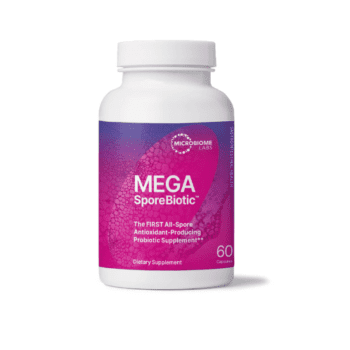
- Select options This product has multiple variants. The options may be chosen on the product page
MegaSporeBiotic
$59.99 – $176.95MegaSporeBiotic™ is a 100% spore-based, broad-spectrum probiotic shown...
-
MegaSporeBiotic For Kids Gummies
$26.10MegaSporeBiotic™ Gummies are a 100% spore-based proprietary probiotic...
-
MegaMucosa
$59.99MegaMucosa is the first complete mucosal support supplement...

Meet Your Microbiome: The Human Microbiome and How to Optimize It
Meet Your Microbiome: The Human Microbiome and How to Optimize It On and in the average human, there reside approximately
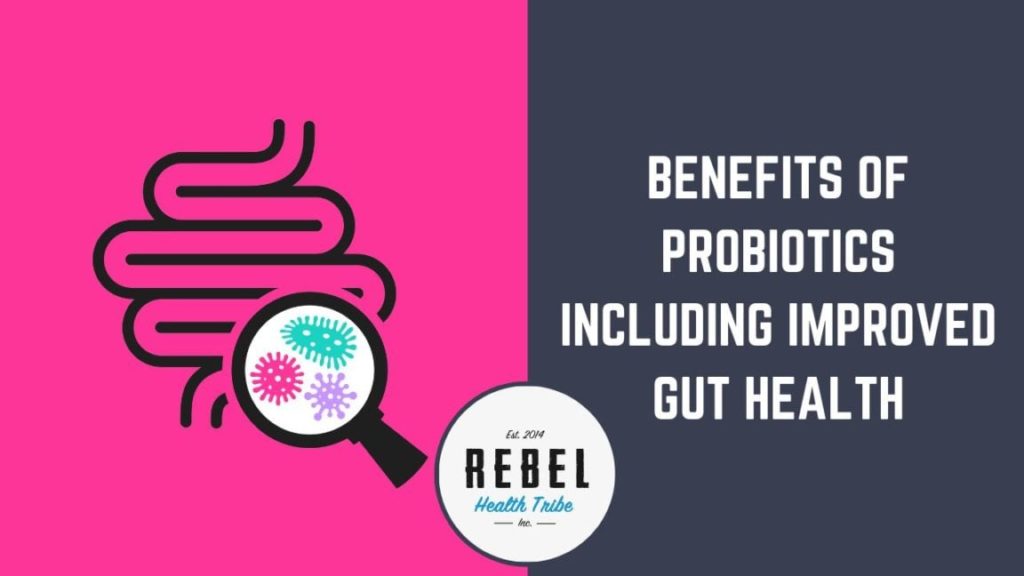
Benefits of Probiotics Including Improved Gut Health
Benefits of Probiotics Including Improved Gut Health “Probiotics” has become quite the buzzword – with countless products and supplements proudly
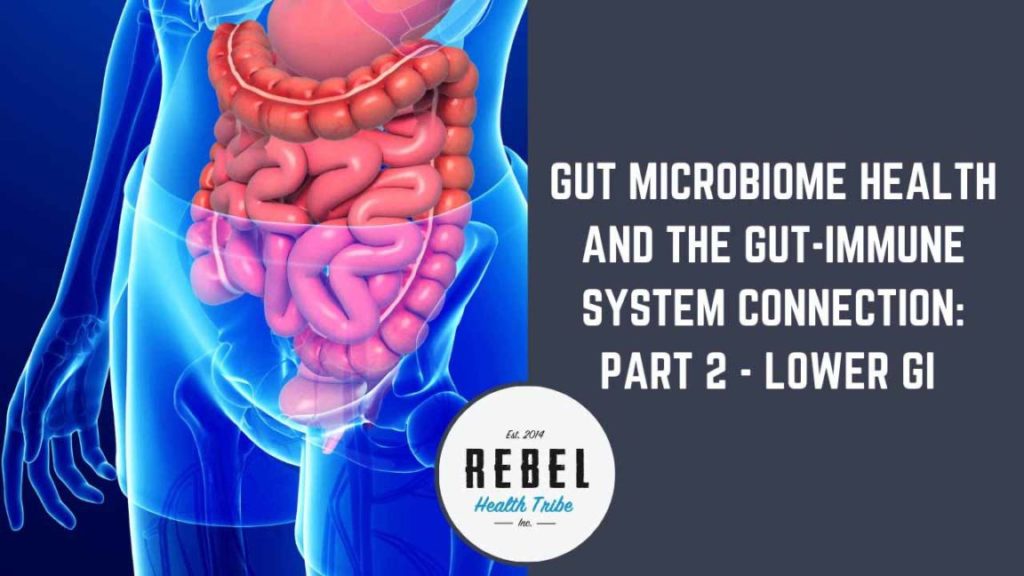
Gut Microbiome Health and the Gut-Immune System Connection: Part 2 Lower GI
Gut Microbiome Health and the Gut-Immune System Connection: Part 2 Lower GI The diverse community of microbes in your digestive
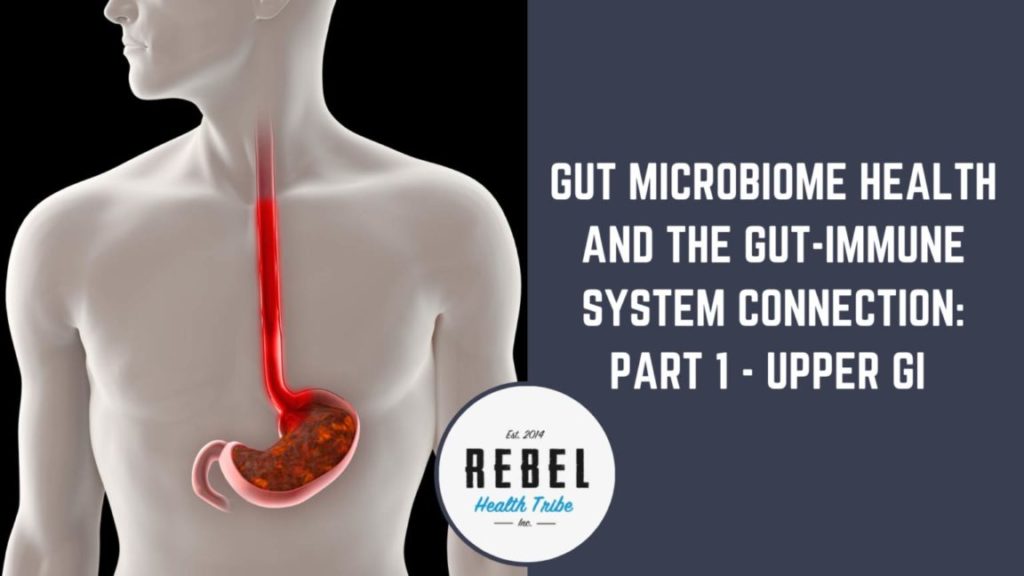
Gut Microbiome Health and the Gut-Immune System Connection: Part 1 Upper GI
Gut Microbiome Health and the Gut-Immune System Connection: Part 1 Upper GI The message is out: gut health is critical



